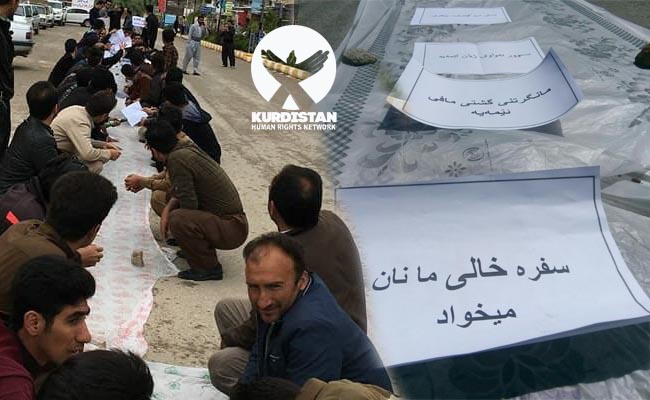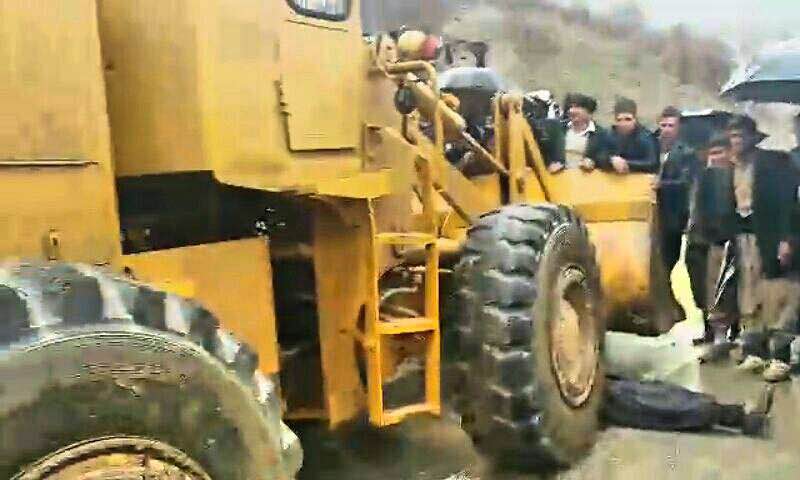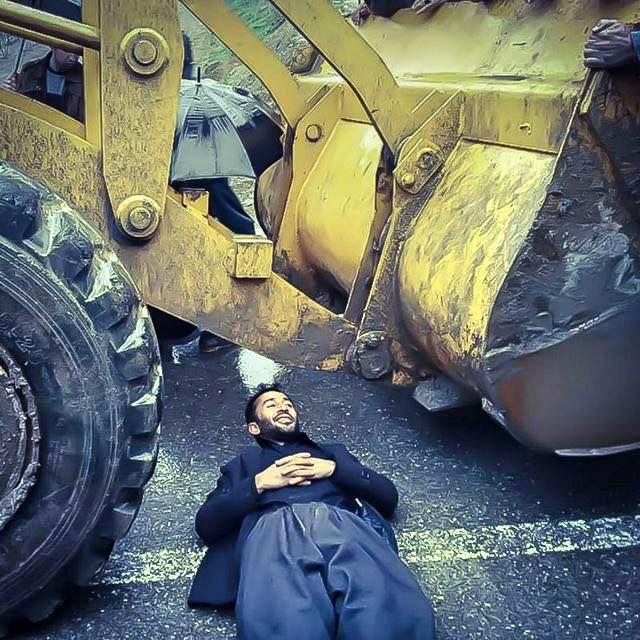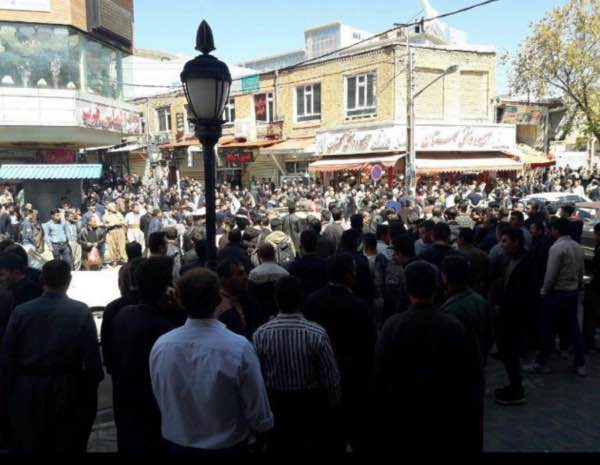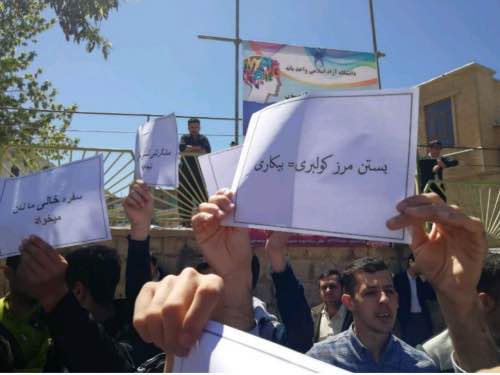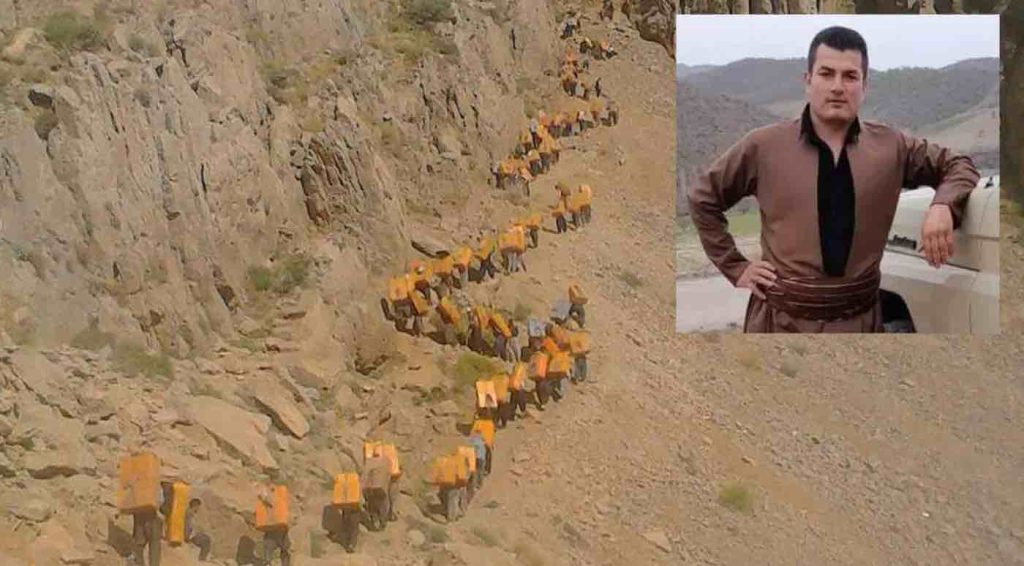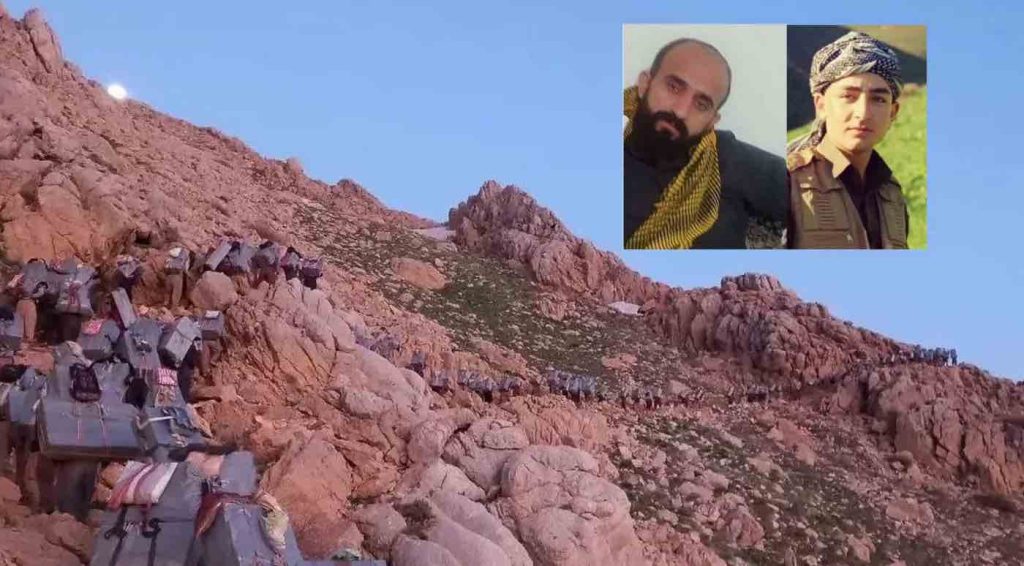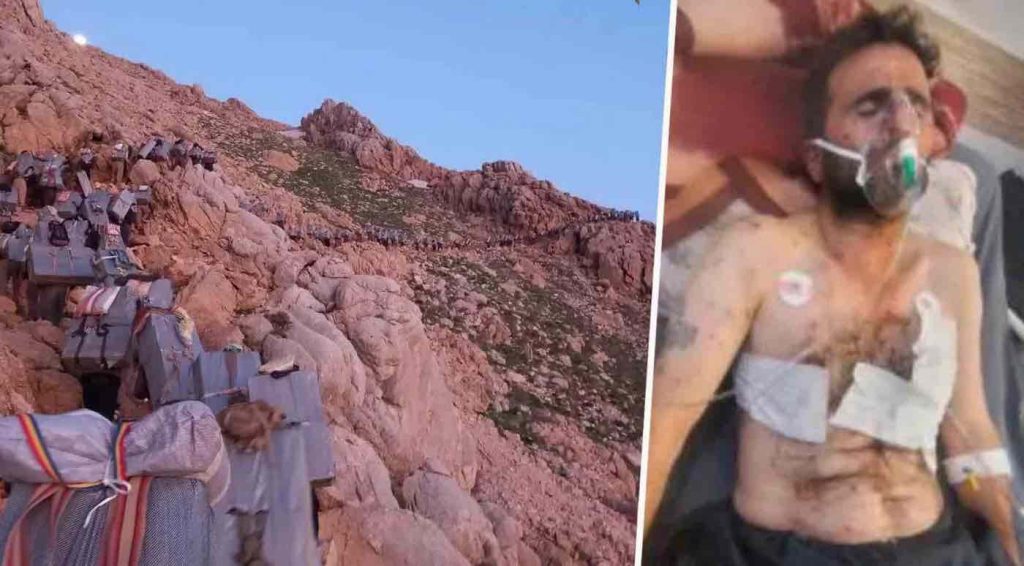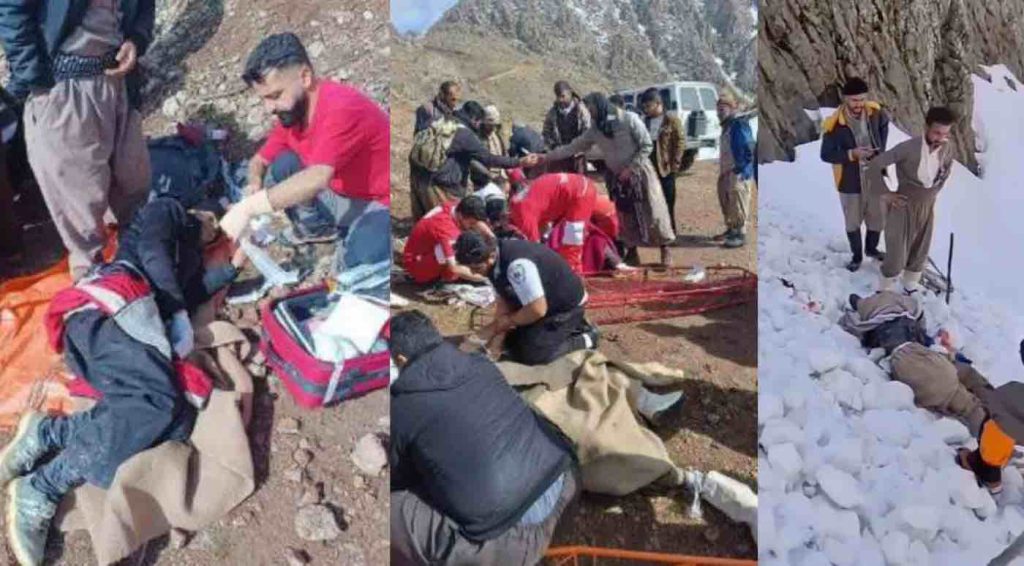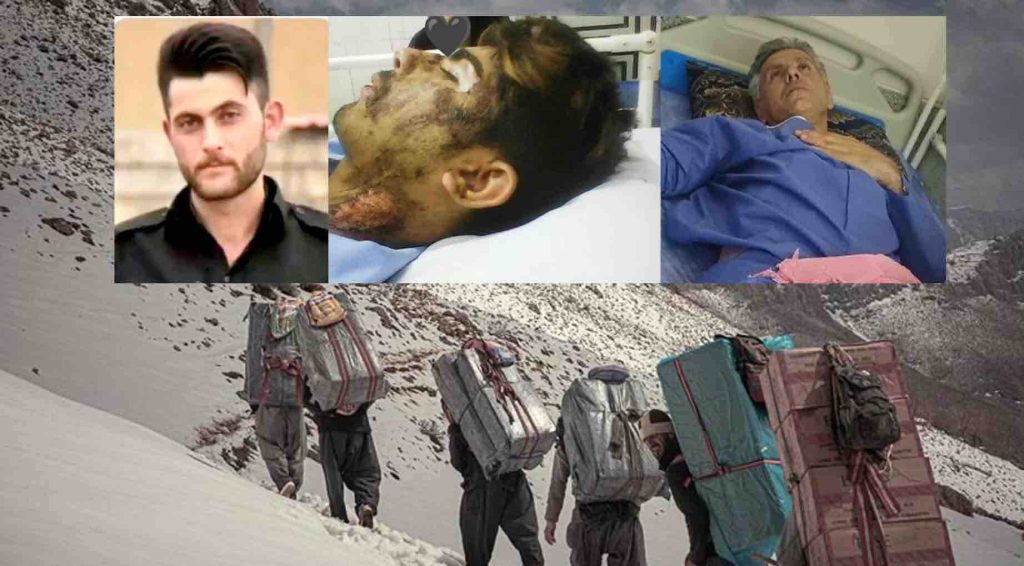On the third day of the strike and protest by the Marketers in the cities of Javanrood and Baneh, Mariwan and Saqqez marketers also joined the protests. During this process, the markets of these cities are also half-closed.
Various sources of Kurdistan Human Rights Network (KHRN) from Baneh, Javanrood, Mariwan, Saqqez and Sardasht have reported widespread strike of marketers and businessman during the business hours and protests in front of the governor’s buildings and municipalities of these cities as the market closes.
According to reports, in addition to the closure of market in Baneh and Javanrood for the third day in a row, businessmen and protesters have set an empty tablecloth (to symbolise the fact that kolbars cannot feed their families) in Protest to the Closure of Border Crossings and the High Cost of Customs. Yesterday afternoon with the participation of a number of Baneh marketers, a meeting was held with the governor and law enforcement officials of Baneh who promised to pursue the demands of the marketers while asking them to end their strike and protests.
According to reports from Baneh, a number of special forces from the provincial capital have been transferred to the Baneh Police Station and are standby.
Businessmen and protesters of Javanrood also gathered in front of the city’s municipality and demanded their claims, but no government official has responded to their request so far.
Over the past three months since the closure of the unofficial borders, thousands of kolbars have lost their job while hundreds of shopkeepers have incurred huge losses due to the high cost of clearing the goods at the official borders.
“Late last year, the Cabinet of Ministers approved a scheme for ending Kulbars’ work by introducing Pedlar Plan (*Pilewari in Persian). This plan has many disadvantages such as the requirement to register in the special system of the Ministry of Industry, Mines & Commerce for obtaining a licence. This plan does not include all the frontiers as it is subject to many terms and conditions. The new scheme, called the creation of a customs, is accompanied by a high tariff for clearance which is purely a two-way deal between the main traders and the customs department while the work of kolbars benefited all social classes in these cities.”, one of the marketers in Mariwan told KHRN regarding the latest status of border crossing.
Over the past few months, following the blockade of the unofficial border crossings of Kurdistan, tens of thousands of kolbars who formally worked as a kolbars have had to continue working as Kolbars illegally. Due to the large presence of troops on the borders to stop these Kolbars, the number of Kolbars losing their life during work has risen.
Pictures of strikes and protests in Different Cities of Kurdistan
- Saqqez
- Baneh

